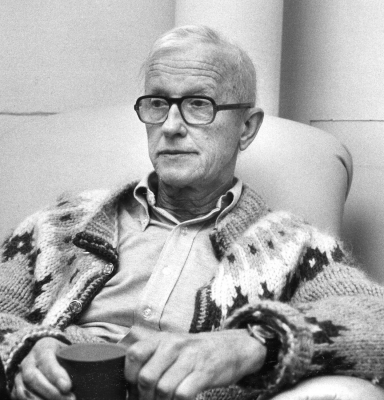
Max Delbruck was a German-American biophysicist, recognised for his contribution to molecular genetics. He won the 1969 Nobel Prize for Physiology or Medicine for his work on bacteriophages-viruses that infect bacterial cells.
Max Delbruck was born in Berlin, Germany. In 1930, he received a Ph.D. in physics from the University of Gottingen. As a physicist, Delbruck worked as an assistant to Lise Meitner and studied irradiation of uranium and neutron. But sooner, he became interested in bacteriophages, after his meeting with Wolfgang Pauli and Niels Bohr. In 1937, Delbruck left Nazi Germany for the United States, having won the Rockefeller Foundation scholarship to do research on the genetics of fruit fly in California Institute of Technology (Caltech). While at Caltech, he studied bacteria and their viruses called bacteriophages. In 1939, Delbruck discovered a one-step process for growing bacteriophages, which after a one-hour latent period would multiply to produce several hundred thousand progeny. He co-authored The growth of bacteriophage along with Emory L Ellis with this finding. In 1943, Delbruck and Salvador Luria announced their discovery that a bacterium that has been infected by a bacteriophage can undergo spontaneous mutations so that it becomes immune to the phage. He conducted many studies on bacteriophage and paved the way for an explosion of new findings in the field of molecular biology. In 1945, he formed the Phage Group along with Salvador Luria, Alfred Hershey and other scientists to gather and discuss ideas on genetics.
In the late 1940s, Delbruck shifted his focus on sensory perception and studied how light affected the growth of the fungus phycomyces. As he did with the phage research, Delbruck formed a Phycomyces Group to gather and discuss ideas.
In 1969, Delbruuck won the Nobel Prize for physiology or medicine, which he shared with Alfred Day Hershey and Salvador Edward Luria, for their work in molecular genetics. In 1977, he retired from Caltech, remaining a Professor of Biology emeritus. He died of cancer in 1981.
Picture Credit : Google




